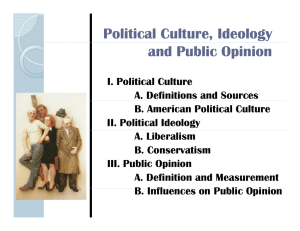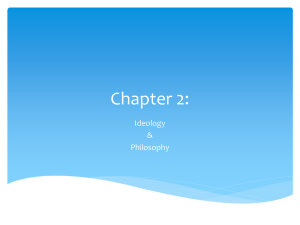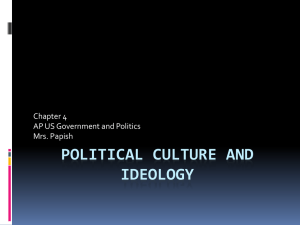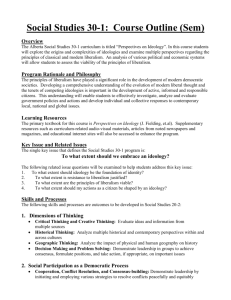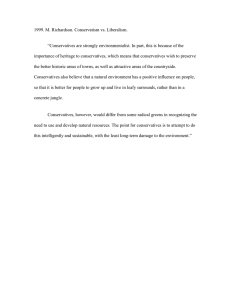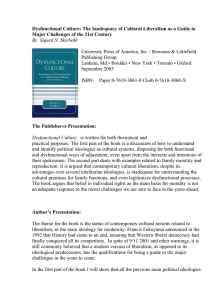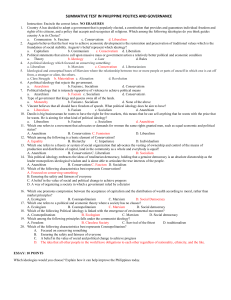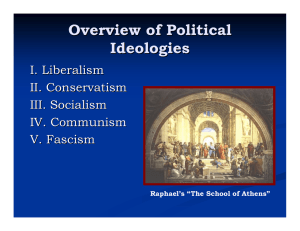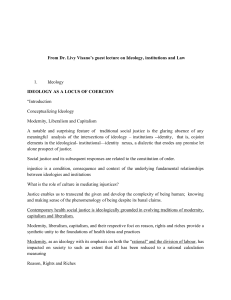Ch. 4 Notes: Political Culture and Ideology
advertisement
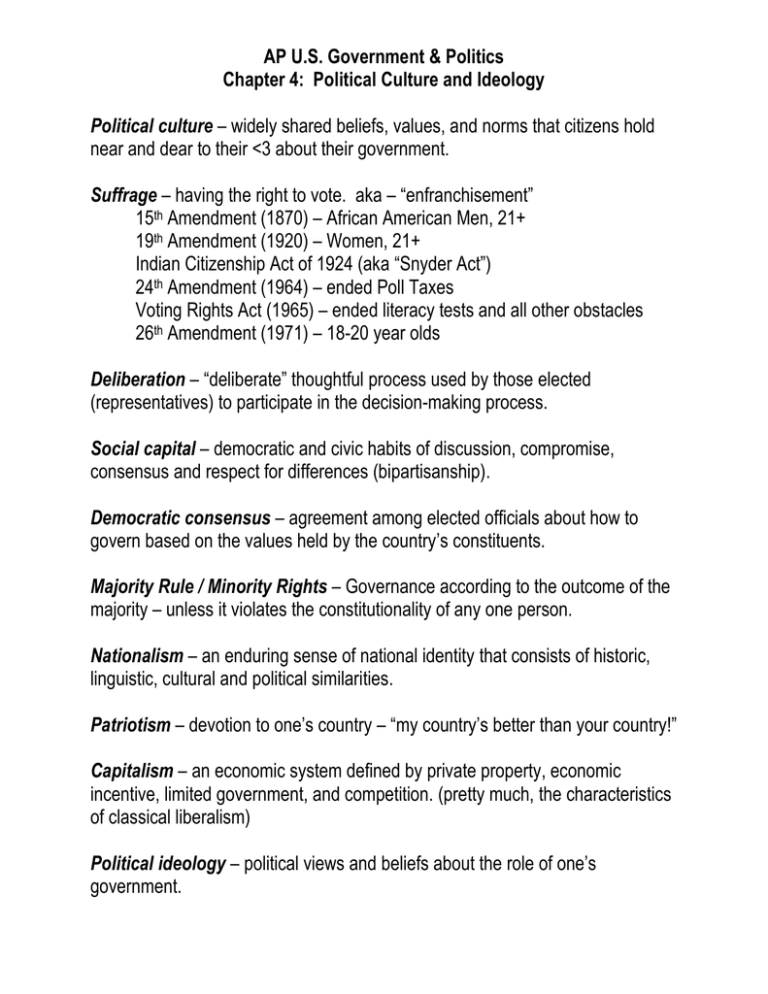
AP U.S. Government & Politics Chapter 4: Political Culture and Ideology Political culture – widely shared beliefs, values, and norms that citizens hold near and dear to their <3 about their government. Suffrage – having the right to vote. aka – “enfranchisement” 15th Amendment (1870) – African American Men, 21+ 19th Amendment (1920) – Women, 21+ Indian Citizenship Act of 1924 (aka “Snyder Act”) 24th Amendment (1964) – ended Poll Taxes Voting Rights Act (1965) – ended literacy tests and all other obstacles 26th Amendment (1971) – 18-20 year olds Deliberation – “deliberate” thoughtful process used by those elected (representatives) to participate in the decision-making process. Social capital – democratic and civic habits of discussion, compromise, consensus and respect for differences (bipartisanship). Democratic consensus – agreement among elected officials about how to govern based on the values held by the country’s constituents. Majority Rule / Minority Rights – Governance according to the outcome of the majority – unless it violates the constitutionality of any one person. Nationalism – an enduring sense of national identity that consists of historic, linguistic, cultural and political similarities. Patriotism – devotion to one’s country – “my country’s better than your country!” Capitalism – an economic system defined by private property, economic incentive, limited government, and competition. (pretty much, the characteristics of classical liberalism) Political ideology – political views and beliefs about the role of one’s government. Classical liberalism – an idea that emerged in the 17th and 18th centuries that government should be limited, and that people / businesses should be protected from too much government involvement / regulation. Contemporary liberalism – refers to the government’s role in ensuring that equality and justice are provided for everyone, including those traditionally / formerly marginalized in society. Calls for governmental intervention when necessary. Conservatism – belief in free enterprise: property rights, competitive markets, and personal opportunity. (“conserving” these rights and enhancing individual liberties.) - Traditional Conservatives: pro-business, low taxes, minimum regulations - Social Conservatives: less focus on economic, more focus on morality and lifestyle, i.e. pro life, anti affirmative action, anti same sex marriage. Socialism – an economic system based on public ownership. The government owns all means of production – no private property. (Karl Marx – “transitional stage between capitalism and communism.) Communism – political, social and economic system in which land and capital are collectively owned and political power is exercised by the masses. (Single political party, i.e. China, Cuba, Vietnam) Libertarianism – political ideology that values individual liberty and extremely limited government. To a degree, combining anarchism with conservatism. Opposed to governmental regulation (seat belt & helmet laws), the UN or foreign involvement. Regulation is costly and interferes with the free market, and foreign involvement is an unnecessary cost.
